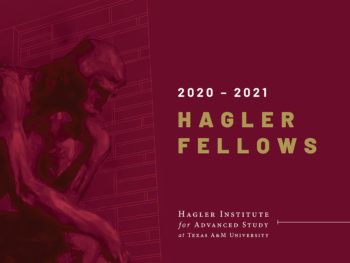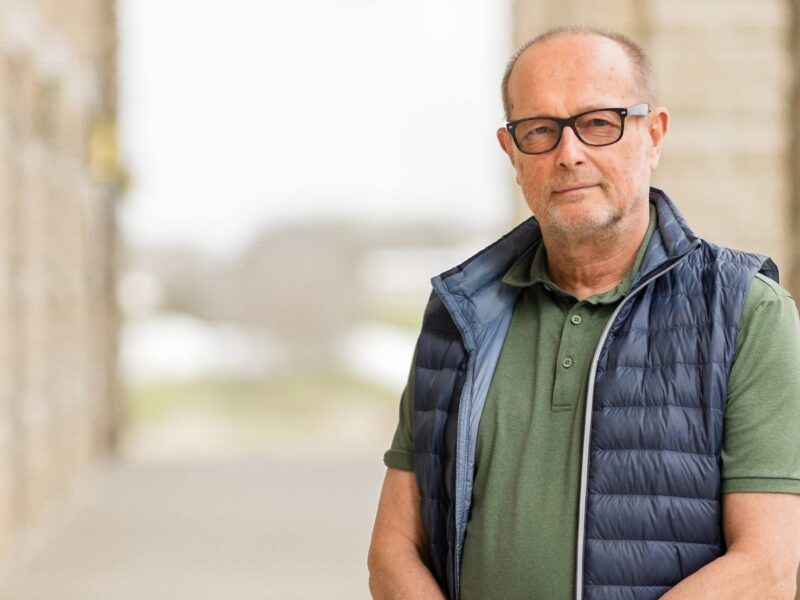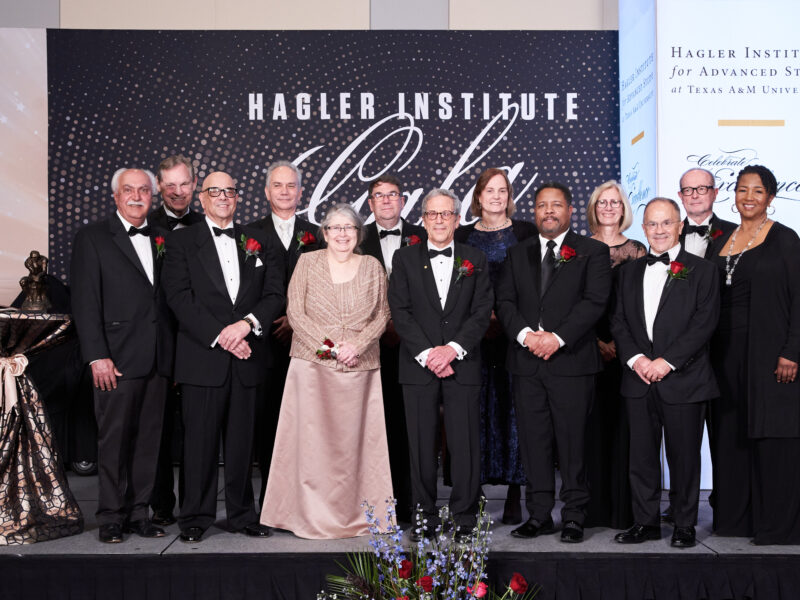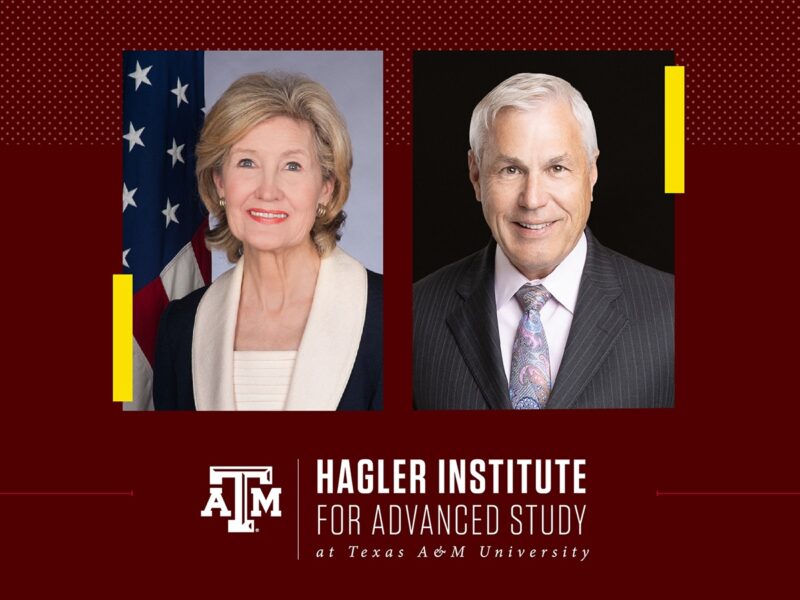Texas A&M Hagler Institute Announces 2020-21 Hagler Fellows, Distinguished Lecturer

The Hagler Institute for Advanced Study at Texas A&M University announced today 10 Hagler Fellows for its Class of 2020-21 and one Distinguished Lecturer.
The newest class of Hagler Fellows includes scholars recognized internationally for their achievements and scholarship. The Fellows belong to the National Academies of Sciences, Engineering and Medicine, the Academy of Arts and Sciences, or hold recognitions of equal stature in their fields.
“The Hagler Institute continues to make outstanding contributions to research and education at Texas A&M by attracting an amazing variety of world-class scholars to collaborate with our faculty and students on groundbreaking research projects,” said Texas A&M University System Chancellor John Sharp. “By pairing this amazing program with the Chancellor’s Research Initiative, we attract significant numbers of National Academy-level professors to our permanent faculty. By any standard, the Hagler Institute is an astounding success story.”
Each Hagler Fellow will collaborate with faculty, researchers and students in the colleges of agriculture and life sciences, architecture, education and human development, engineering, liberal arts, medicine, science, veterinary medicine and biomedical sciences; the schools of law and business; the University Libraries; and the Institute for Quantum Science and Engineering.
“This class of Hagler Fellows represents perhaps the most diverse class the Institute has attracted to our campuses so far,” said Vice President for Research Mark A. Barteau. “The breadth and impact of their scholarship and experiences is incredible, and I have no doubt that they will inspire our faculty and students alike.”
The Institute selects its Hagler Fellows from among top scholars who have distinguished themselves through outstanding professional accomplishments or significant recognition. Previous classes of Hagler Fellows have included two Nobel laureates, a Wolf Prize recipient, a recipient of the Hubble Medal in Literature for Lifetime Achievement, a recipient of the National Medal of Science, an awardee of the National Medal of Technology and Innovation, a two-time recipient of the State Prize of Russia and a recipient of both the National Humanities Medal and the Johan Skytte Prize, the most prestigious award in political science.
“With an emphasis on diversity as well as excellence, this ninth class of Hagler Fellows brings to 80 the number of remarkable scholars attracted to Texas A&M through this program since 2012,” said Founding Director John L. Junkins of the Hagler Institute. “We anticipate that each will have a positive and permanent impact on our faculty, our students and on the culture of the Texas A&M campus.”
The Hagler Institute plans to induct the following scholars into the Class of 2020-21 Fellows during its annual gala in 2021:
- Graham Cooks, Henry B. Hass Distinguished Professor of Analytical Chemistry, Department of Chemistry, Purdue University – Cooks’ special interest is in mass spectrometry, including fundamental phenomena, instrumentation and analytical applications. Cooks is a member of the National Academy of Sciences and the American Academy of Arts and Sciences. He will offer a series of lectures on mass spectrometry and collaborate with faculty and students in the College of Science.
- Andrew P. Feinberg, director, The Epigenetics Center, Bloomberg Distinguished Professor, Johns Hopkins University School of Medicine, Whiting School of Engineering and Bloomberg School of Public Health, Johns Hopkins University − Feinberg pioneered the field of human disease epigenetics, discovering altered DNA methylation in cancer four decades ago. Feinberg is a member of the National Academy of Medicine and the American Academy of Arts and Sciences. Feinberg will collaborate with faculty and students in the College of Medicine.
- James J. Giovannoni, director, Robert W. Holley Center for Agriculture & Health Laboratory, USDA Agricultural Research Service and the Boyce Thompson Institute, Cornell University − Giovannoni is best known for his molecular and genetic analysis of fruit physiology and ripening, and signal transduction systems in the tomato and additional fruit species. He is a member of the National Academy of Sciences and a fellow of the American Association for the Advancement of Science. He will collaborate with faculty and students in the colleges of science, agriculture and life sciences, engineering, veterinary medicine and biomedical sciences, and medicine.
- Paula T. Hammond, head, Department of Chemical Engineering, David H. Koch (1962) Professor in Engineering, Massachusetts Institute of Technology − Hammond’s research interests include macromolecular design and synthesis, targeted drug delivery for cancer, nanoscale assembly of synthetic biomaterials, and electrostatic and directed materials assembly. Hammond is a member of the National Academy of Sciences, the National Academy of Engineering, the National Academy of Medicine and the American Academy of Arts and Sciences. She will collaborate with faculty and students in the College of Engineering.
- Timothy A. Judge, Joseph A. Alutto Chair in Leadership Effectiveness, Department of Management and Human Resources, Fisher College of Business, The Ohio State University − Judge’s research clarifies the role of personality in job performance, job attitudes and career success. Judge is a prolific author, with more than 150 journal articles, five textbooks and more than 77,000 citations. He is the inaugural holder of the Trisha and Chaz Neely Hagler College Chair for Mays Business School and will collaborate with faculty and students there.
- Julia King, Professor Baroness Brown of Cambridge, Crossbench Life Peer, House of Lords, London, Chair, Sir Henry Royce Institute for Advanced Materials, Carbon Trust − King is best known for her work in science, technology and policy to support low-carbon and new negative-emissions science. She advocates for low-carbon science and evidence-based methods to achieve significant emissions reductions. She is a fellow of both the Royal Academy of Engineering and the Royal Society. King will collaborate with faculty and students in the colleges of science, engineering and architecture.
- Gloria Ladson-Billings, Professor Emerita, University of Wisconsin-Madison − Ladson-Billings’ research examines the pedagogical practices of teachers who are successful with African American students. She also investigates applications of critical race theory to education. Ladson-Billings is a member of the American Academy of Arts and Sciences and president of the National Academy of Education. She will collaborate with faculty and students in the College of Education & Human Development.
- Rachel Moran, Distinguished Professor, University of California, Irvine School of Law − Moran is one of the nation’s leading scholars in education policy, civil rights and race, and the law. Moran is an elected member of the American Law Institute and a former president of the American Association of Law Schools. She is a member of the Permanent Committee for the Oliver Wendell Holmes Devise, which commissions volumes on the history of the Supreme Court. Moran will collaborate with faculty and students in the School of Law.
- Shaul Mukamel, Distinguished Professor, Department of Chemistry, University of California, Irvine − Mukamel is a theoretical chemical physicist who studies molecules by measuring their response to short pulses of light. Mukamel is a member of the National Academy of Sciences and the American Academy of Arts and Sciences and a fellow of the Optical Society of America and the American Physical Society. Mukamel will collaborate with faculty and students in the Institute for Quantum Science and Engineering.
- Lena Cowen Orlin, professor, Department of English, Georgetown University − Orlin is a highly cited expert on private domestic life during the Renaissance and specializes in the works of Shakespeare. Orlin serves on the editorial boards for the journals Shakespeare Studies and Shakespeare Survey and for the publication series Oxford Shakespeare Topics and Arden Shakespeare State of Play. She will collaborate with faculty and students from the College of Liberal Arts and the University Libraries.
In addition, the Hagler Institute announced its Distinguished Lecturer for 2020-21:
- Jennifer A. Lewis, Hansjörg Wyss Professor of Biologically Inspired Engineering, John A. Paulson School of Engineering and Applied Sciences, Harvard University − Lewis pioneered the programmable assembly of soft functional, structural and biological materials. Her bioprinting research was named “one of the top 100 science stories” by Discover Magazine. Lewis is a member of the National Academy of Sciences, the National Academy of Engineering, the National Academy of Inventors, and a fellow of the American Physical Society. She will present lectures in the College of Engineering.
About the Hagler Institute for Advanced Study: The Hagler Institute for Advanced Study was established in December 2010 by The Texas A&M University System Board of Regents to build on the growing academic reputation of Texas A&M and to provide a framework to attract top scholars from throughout the nation and abroad for appointments of up to a year. The selection of Hagler Fellows initiates with faculty nominations of National Academies and Nobel Prize-caliber scholars who align with existing strengths and ambitions of the University.
About Research at Texas A&M University: As one of the world’s leading research institutions, Texas A&M is at the forefront in making significant contributions to scholarship and discovery, including in science and technology. Research conducted at Texas A&M generated annual expenditures of more than $952 million in fiscal year 2019. Texas A&M ranked in the top 20 of the most recent National Science Foundation Higher Education Research and Development survey based on expenditures of more than $922 million in fiscal year 2018. Texas A&M’s research creates new knowledge that provides basic, fundamental, and applied contributions resulting, in many cases, in economic benefits to the state, nation, and world. research.tamu.edu
Media contact: Amanda Scott, 979-458-4989, arscott@tamu.edu





